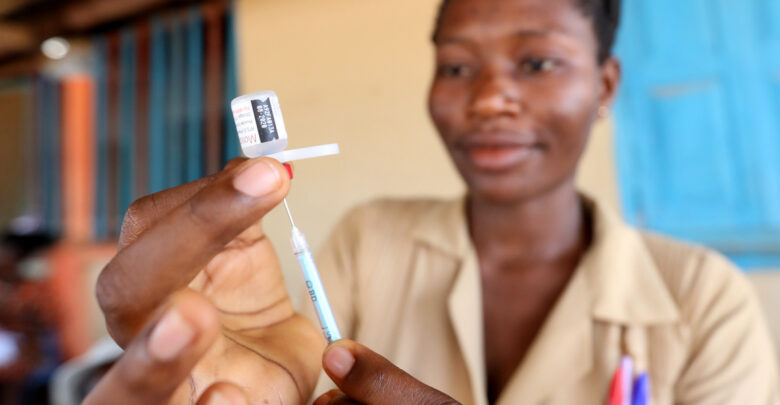Nigeria
Nigeria’s Food & Drug Regulator Grants Provisional Approval To Malaria Vaccine

Nigeria’s National Agency for Food and Drug Administration and Control (NAFDAC) on Monday gave a provisional nod to the use of the R21 malaria vaccine. Nigeria is the second country to do so after Ghana, reported The Guardian.
Malaria is estimated to kill more than 600,000 people each year, most of them African babies and children.
Notably, the approval of Oxford University’s R21 vaccine has been announced even before the publication of final-stage trial data for the vaccine, which aims to curb the mosquito-borne disease.
The second stage trial data of the malaria vaccine were published in September. The trial data, which involved more than 400 young children, showed vaccine efficacy of 70% to 80% at 12 months following the fourth dose.
The phase 3 clinical trial data in Burkina Faso, Kenya, Mali, and Tanzania involving 4,800 children is expected to be out in the coming months.
“A provisional approval of the R21 Malaria Vaccine was recommended and this shall be done in line with the WHO’s Malaria Vaccine Implementation Guideline,” said Nigeria’s food and drug regulator.
Africa’s most populous nation, Nigeria is the worst malaria-affected country in the world, reporting 27% of the total global cases and 32% of total deaths, according to a 2021 World Health Organization (WHO) report.
Mojisola Adeyeye, the head of Nigeria’s NAFDAC, said the vaccine would be used for the prevention of malaria in the most vulnerable group of children aged between five months and three years.
It currently remains unclear when the malaria vaccine will be given in Nigeria or Ghana as the WHO and other regulatory bodies across the world are still assessing its safety and effectiveness.
Oxford University has tied up with India’s Serum Institute to produce up to 200 million doses of R21 annually.
Last week, Ghana became the first country in the world to approve the (R21) vaccine.





